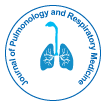开放获取期刊获得更多读者和引用
700 种期刊 和 15,000,000 名读者 每份期刊 获得 25,000 多名读者
抽象的
Advances in Pulmonology: New Treatments and Technologies for Respiratory Diseases
Alastair J Moore
Respiratory diseases, such as asthma, chronic obstructive pulmonary disease (COPD), and lung cancer, continue to be a significant health burden worldwide. However, recent advances in pulmonology have brought about new treatments and technologies that offer hope for patients suffering from these conditions. One significant breakthrough in pulmonology is the development of biologic therapies for severe asthma. These therapies target specific pathways that contribute to asthma symptoms, such as inflammation and airway constriction. Biologics have been shown to reduce the frequency and severity of asthma attacks and improve lung function in patients who do not respond to traditional asthma treatments.
Another promising development in pulmonology is the use of bronchial thermoplastics (BT) for severe asthma. BT involves the delivery of thermal energy to the airways, reducing the amount of smooth muscle in the bronchial walls and decreasing airway constriction. Studies have shown that BT can improve asthma symptoms and reduce the need for rescue medications. COPD is another respiratory disease that has benefited from advances in pulmonology. The introduction of new inhalers that combine multiple medications, such as long-acting beta-agonists and muscarinic antagonists, has improved symptom control and reduced exacerbations in patients with COPD. Additionally, newer medications that target specific pathways involved in COPD, such as phosphodiesterase-4 inhibitors, have shown promise in reducing inflammation and improving lung function.

 English
English  Spanish
Spanish  Russian
Russian  German
German  French
French  Japanese
Japanese  Portuguese
Portuguese  Hindi
Hindi